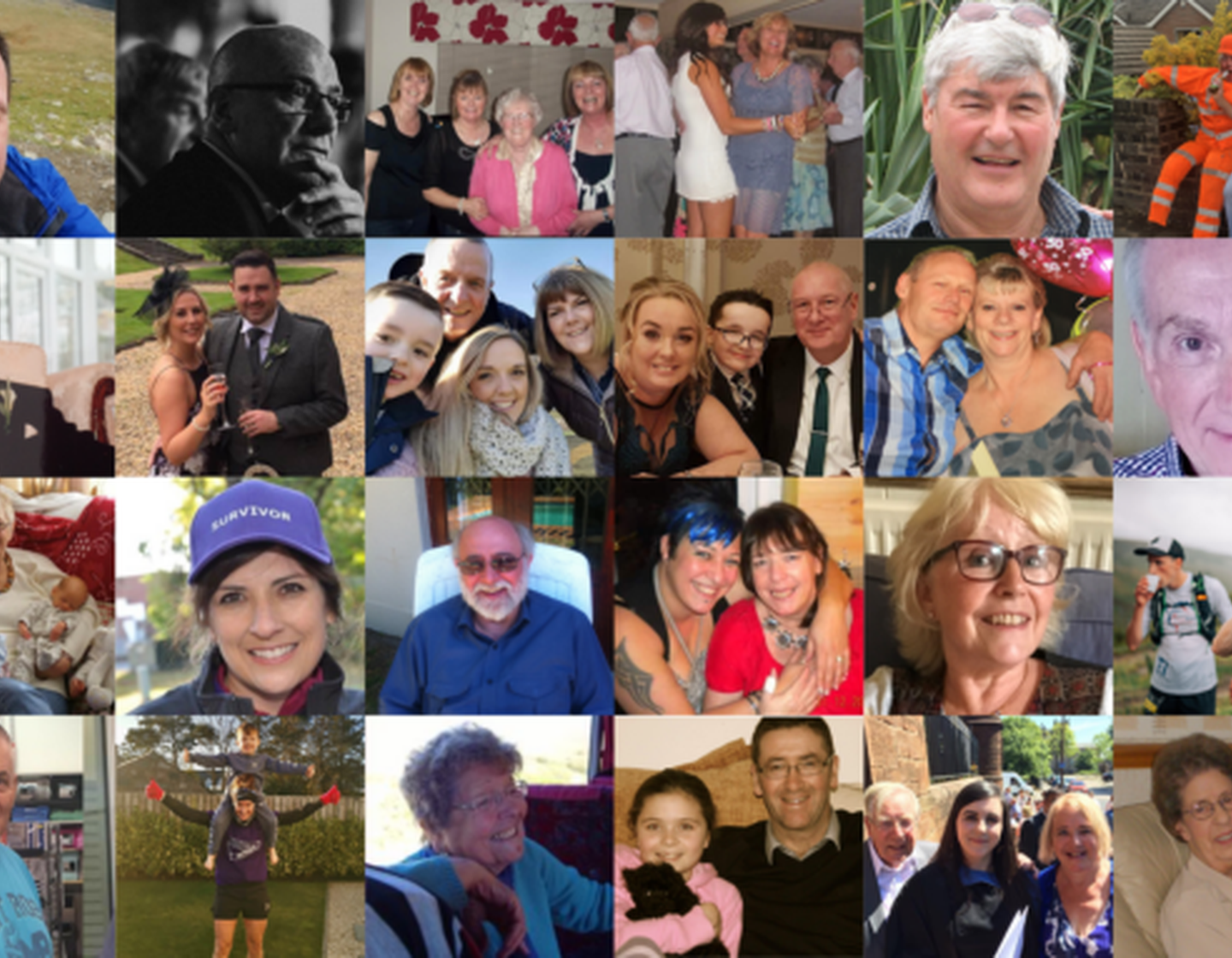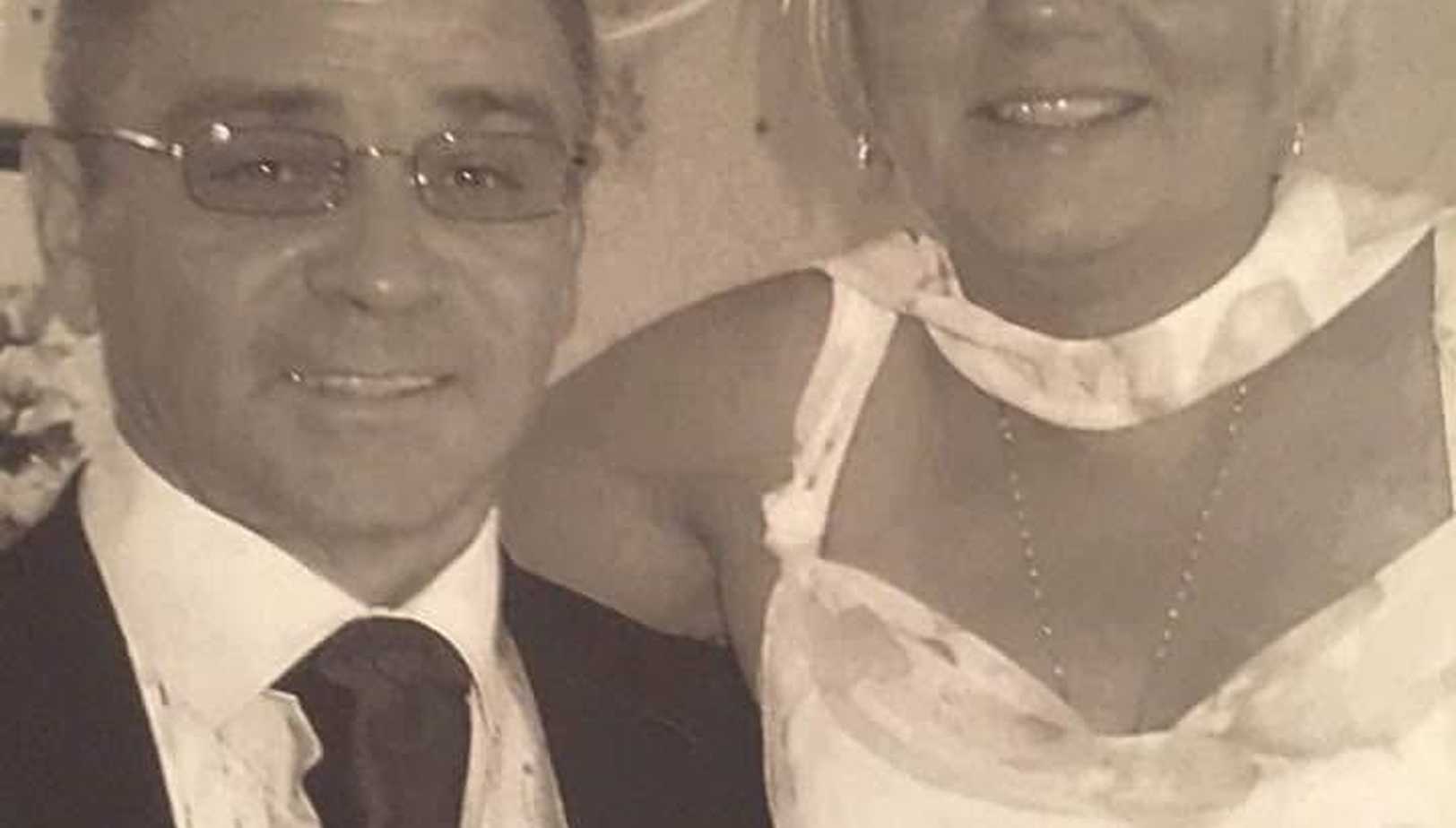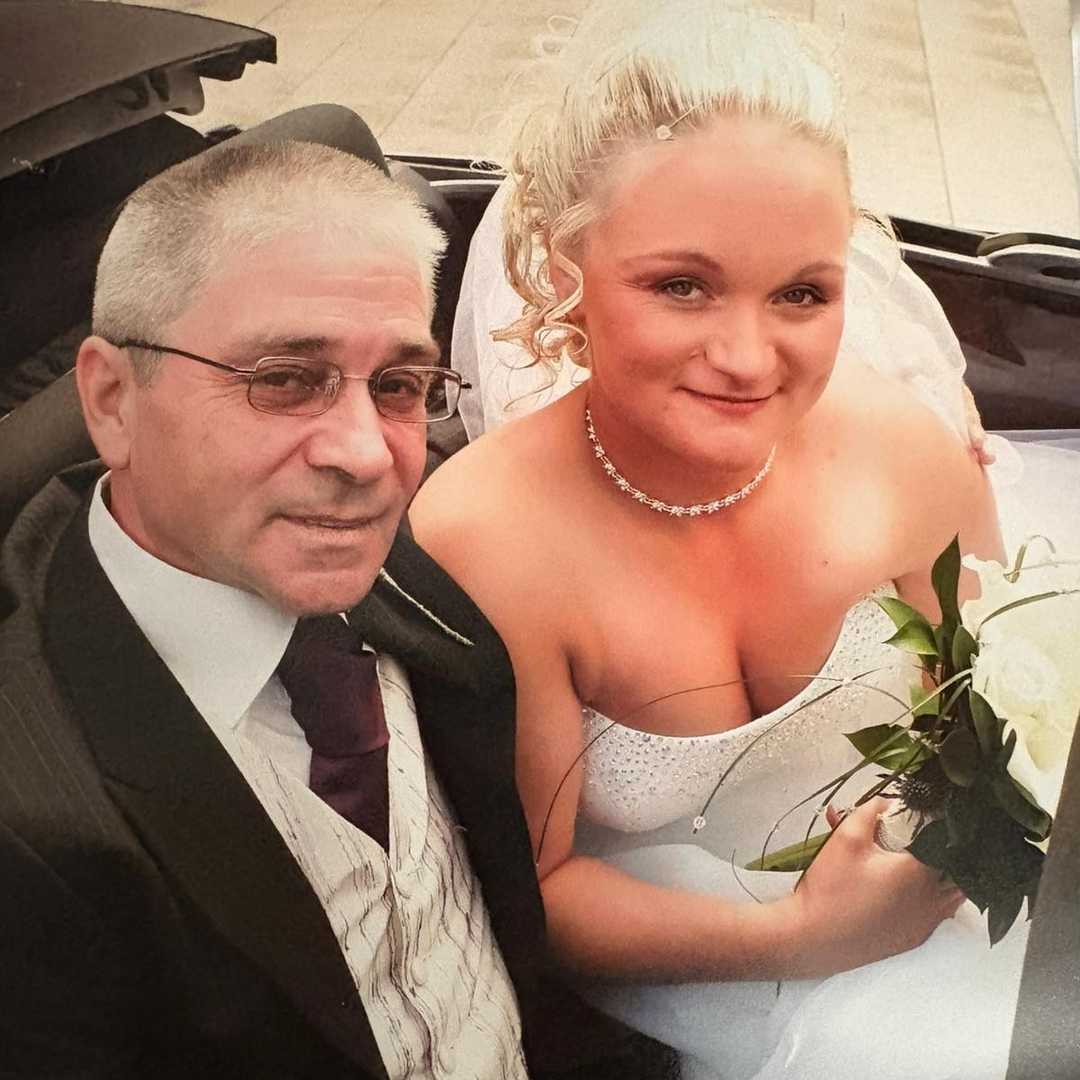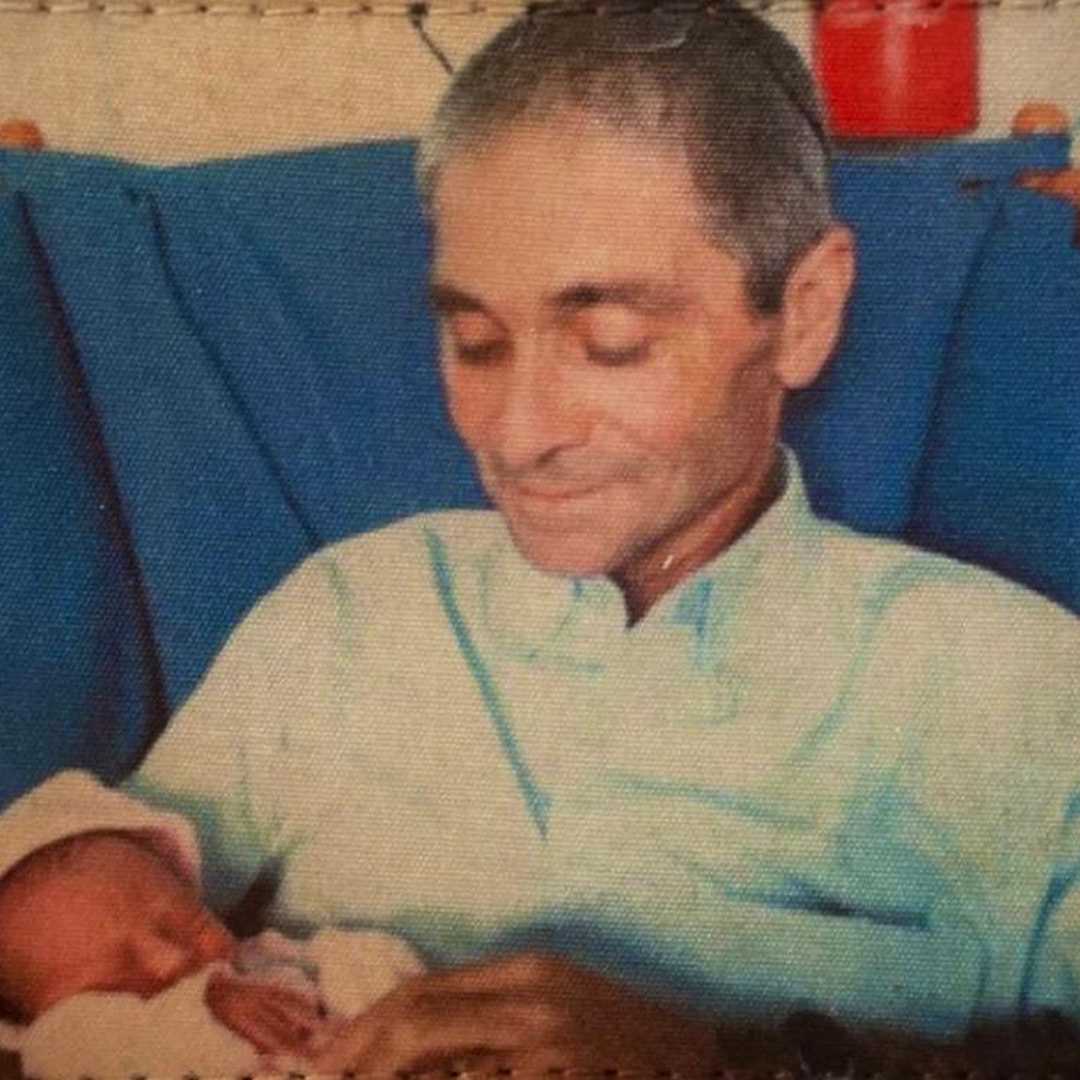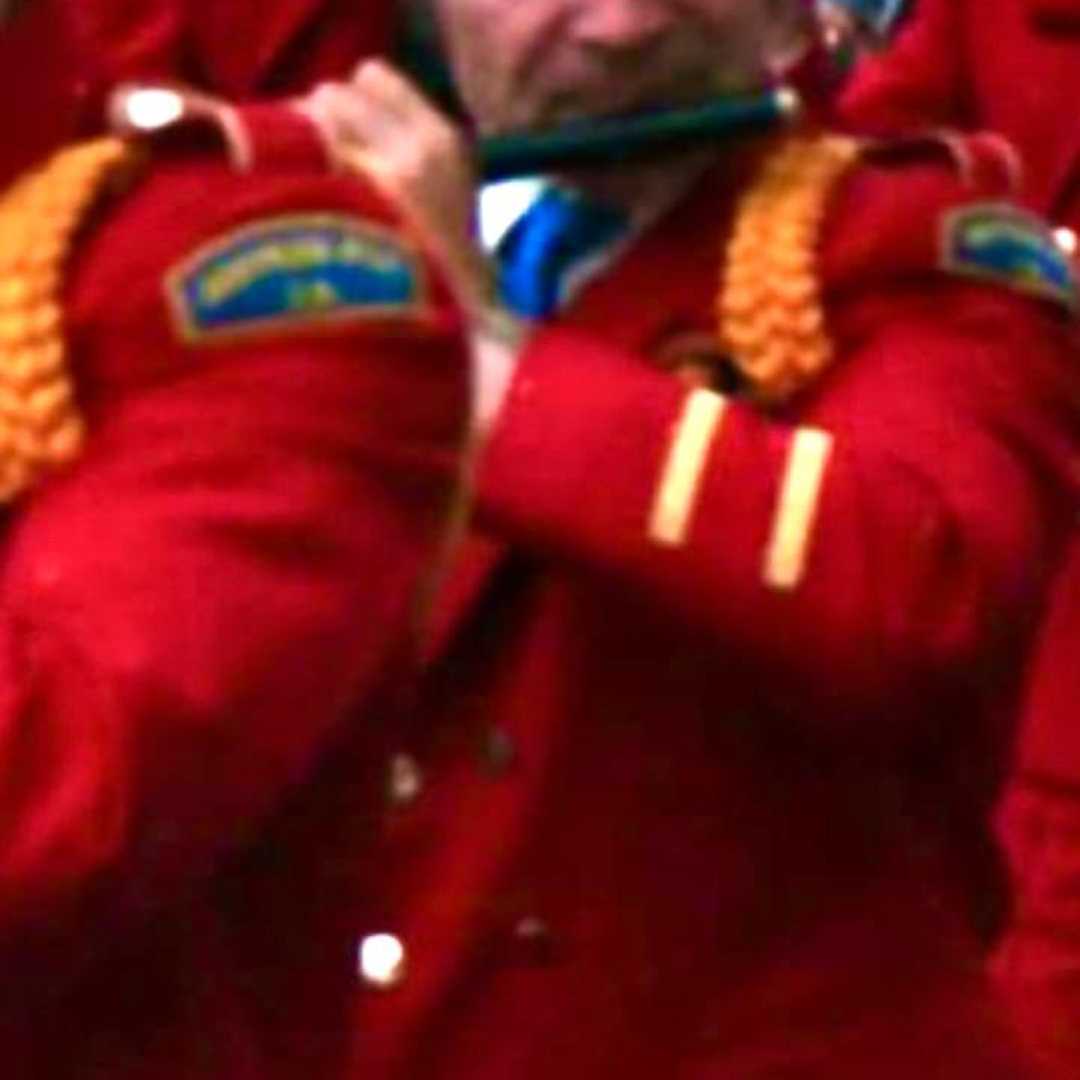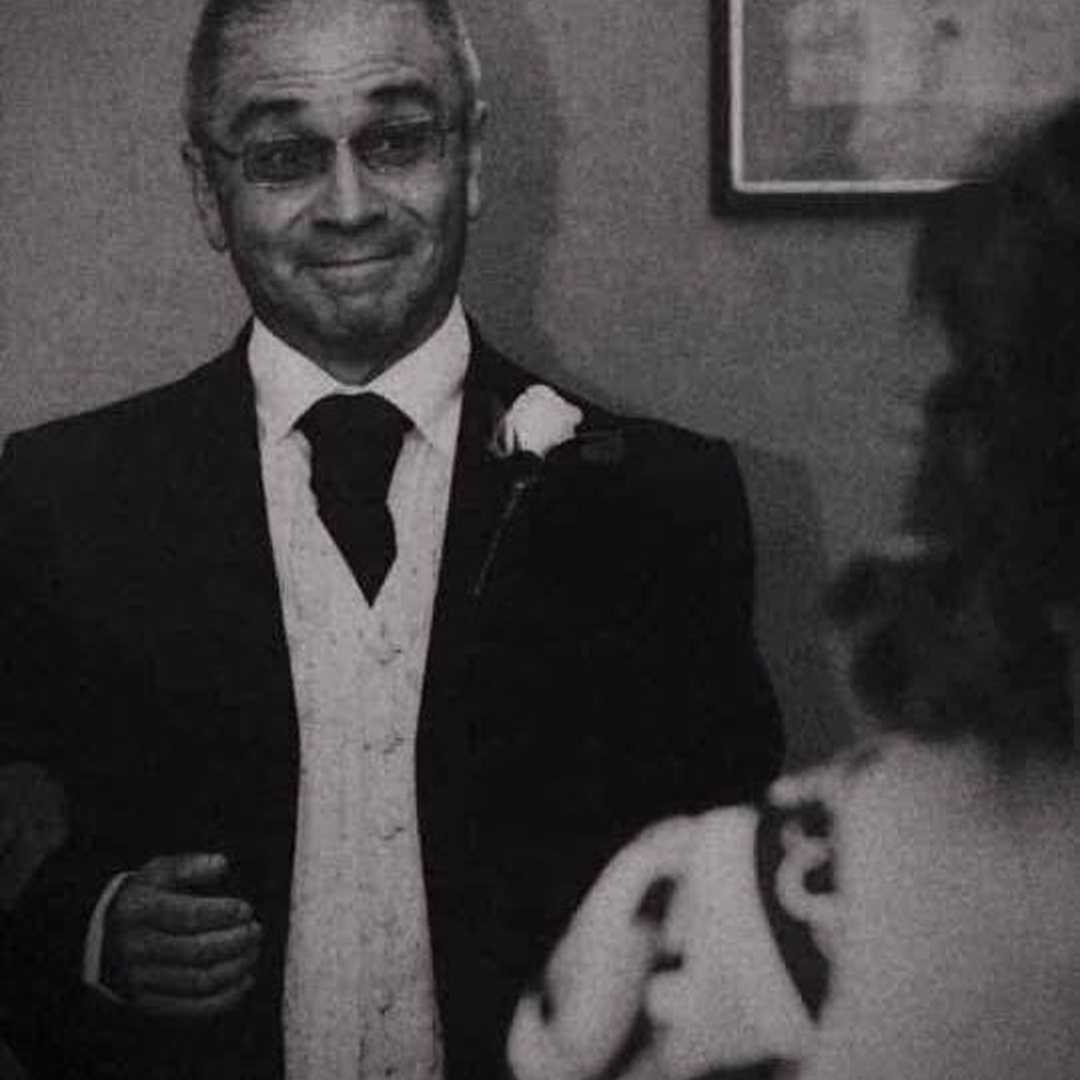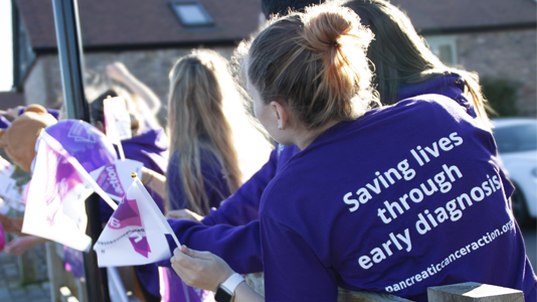Dennis Haighton's story
- Posted: 6 November 2025
- 4 min read
My name is Abbie Thompson, I am 22 years old and I live in Carrickfergus, Northern Ireland. I was only five when my granda, Dennis Haighton, died from pancreatic cancer, but his story has been told to me so many times by my granny and family that I feel as though I lived it alongside them.
Even now, so many years later, his strength and his suffering stay with me. I want to share what happened to him in the hope that it helps others recognise the signs of pancreatic cancer and pushes for earlier diagnosis.
Dennis grew up in Belfast and later moved to Carrickfergus in the early 1990s. He was a proud member of the Gertrude Star Flute Band and was well known in the community. He also worked as a civil servant for the PSNI, a role he carried out with pride. More than anything though, he was a family man. He and my granny had five children together, but he had seven in total, and today there are many grandchildren, with twelve born since his passing. He was only 56 when the first symptoms appeared.
In January 2007, he began to experience severe stomach pain. It was so intense that he would end up sitting on the ground, unable to cope with it. At the same time, he noticed that he was losing weight. He became so concerned that before going to see his doctor he began weighing himself every week, keeping track of what was happening. My granda was certain that something was very wrong. At his first GP appointment he told the doctor directly, “I have cancer.” Unfortunately, he was not believed. The doctor told him that pain and weight loss did not necessarily mean cancer and sent him for an ultrasound, but nothing was found.
The pain continued and painkillers did little to help. My granda returned to the GP repeatedly, still convinced that he was right. Eventually he was referred to a consultant at Whiteabbey Hospital. They carried out what was described as a full MOT of his body, including more scans, a CT, and biopsies. Even then, the process was painfully slow. He waited a month and a half for results, and by that time, seven and a half months had passed since his very first appointment. During this whole time he was in constant pain, losing weight, and still without any answers.
When the diagnosis finally came, it was pancreatic cancer. By then it was too advanced for surgery, the only potential cure. My granny was told privately that he may only have around a month left. My granda did not want to hear about time-frames or statistics, but he did want treatment. He was admitted to hospital and given a round of chemotherapy. My granny remembers how remarkable the change was. For the first time in months, he was free of pain and felt well. He was able to enjoy life again, even if only for a short while. A second round of chemotherapy followed two months later and again it gave him relief. Sadly, after that the doctors would not give him anymore.
Back at home, my granda managed his illness with morphine and other medications. He never really escaped the pain for long, but he tried to keep going as best as he could. What makes his story so hard to accept is that in all that time the main symptoms he had were pain and weight loss. There was no jaundice, no itchy skin, and nothing else that might have raised the alarm sooner. My granny often says that most of the seven and a half months it took to reach a diagnosis were wasted waiting for appointments, waiting for results, and waiting for answers. From the very beginning he knew something was badly wrong, but he was not taken seriously.
On 3 October 2008, a nurse finally came to the house to set up a syringe driver to ease his symptoms. By this stage my granda was mostly sleeping. His wife, children, and siblings gathered around him, knowing the end was near. In the early hours of 4 October 2008, at just 58 years old, he passed away peacefully at home. The nurse had come only that morning, just hours before he died.
Even in those final months, my granda’s determination and love for his family shone through. My granny recalls a moment when one of his granddaughters was born prematurely in Londonderry. Despite being very unwell and in great pain, he drove the two hours from Carrickfergus to see her in hospital, determined not to miss the chance in case he never got another. That is the kind of man he was. Family meant everything to him. Such a proud man, even towards the end of life he did not want a hospital bed brought into the house. When he was dying at home he was sleeping on the sofa, which is where he passed away.
Looking back, my granny often says that had he been diagnosed at his very first appointment, he might still be with us today. He had been telling his doctor from the beginning that something was wrong. His words, “I have cancer,” were dismissed, and precious time was lost.
That is why I am sharing his story now for Pancreatic Cancer Action. Pancreatic cancer is often called a silent disease because the symptoms can be vague and easy to misdiagnose. But people know their own bodies, and if you feel something is wrong, you must not be afraid to push for answers. Persistent stomach and back pain, unexplained weight loss, jaundice, changes in digestion – these are all signs that need to be checked urgently. My granda’s story is just one of many, but I hope it helps others to act sooner and doctors to listen more carefully.
Pancreatic cancer is one of the deadliest cancers, yet awareness is still low. Too often it is diagnosed too late, when surgery is no longer possible. By speaking out, I want to honour my granda’s memory and make sure more families have the chance of a different outcome. He should have had more time. He should have been here to see his grandchildren grow. If sharing his story can help even one other person get diagnosed earlier, then it is worth it.
Share your story
If you've been affected by pancreatic cancer, one of the most amazing ways you can help raise awareness and provide support to others, is by sharing your pancreatic cancer stories.
Share your story